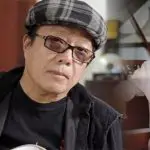Funeral parlor owners are starting to feel the brunt of shouldering the cost of maintaining unclaimed bodies brought to them by the police. These are bodies of slain people allegedly connected to the illegal drug trade in the country.
According to the Philippine Daily Inquirer’s regularly updated Kill List, there have been 242 reported deaths of suspected criminals and around 195 deaths since Duterte assumed office on June 30. Some estimate that the number could be higher and may increase as the anti-drug campaign nears its target duration of 3 to 6 months.
“[President Duterte has] spawned a nuclear explosion of violence that is spiraling out of control and creating a nation without judges,” Jose Manuel Diokno, a human rights lawyer, told Agence France-Press or AFP.
And now, even funeral parlor operators are affected by the “nuclear explosion that is spiraling out of control.” They find it harder to accommodate cadavers brought in by the police. The fact is, receiving and keeping cadavers in their morgues incur great expense on their part, especially when no one is claiming most of the bodies.
[ads1]
“Minsan, marami ng body e malaking gastos pag wala namang pang-gastos,” (Sometimes, there are too many bodies coming in but not enough money for maintaining them) complained Don Morado of Pacheco Memorial Chapels in Quezon City in one interview with ABS-CBN TV Patrol.
“Not really okay, because yung puhunan mo na-ilalabas mo nang walang papasok sayo,” (It’s not okay, because while you use capital to maintain the cadavers, you get no profits back), added Morado. And this is usually the case if there are no claimants to the bodies or the families that claim them are too poor to pay for the cost.
Just imagine the cost of chemical preservatives administered on a regular basis to keep cadavers from decaying too soon and causing health hazards.
“Siyempre, mga pushers sila, pumasok sa drugs, e puro mahihirap ang buhay,” (Of course, being mere drug pushers who got involved in the drug trade due to poverty, their families are too poor to afford funeral costs), Morado said, explaining further why funeral parlors have not really become lucrative today as others have wrongly assumed.
It was once quipped that running a funeral parlor would be the most lucrative business once Duterte starts his office. The idea being that more drug dealers would be killed in the anti-drug operations and therefore more business for funeral parlors. And true enough, dead bodies “have been scattered in the streets,” as one news report described it, on a daily basis.
But it wasn’t necessarily good business for Morado and his ilk.
In fact, they even suffer the ire of the victim’s families: “Yung galit nila minsan sa gobyerno, o sa mga pulis na allegedly na naka-shootout nila, e minsan sa amin nagagalit kapag sisingilin na namin,” (Their ire for the government, or the cops their killed loved ones have allegedly encountered in a shootout, are often re-directed to us when we’re about to charge them for funeral fees).
This is also why some funeral parlors choose to do their business through referrals instead of getting accredited with SOCO.
Unlike what Duterte predicted during his campaign when he said that funeral parlors will earn a lot, funeral parlors fear losing business over maintaining too many unclaimed bodies and not being able to ask suspects’ kin for payment for their services.
[ads3]


